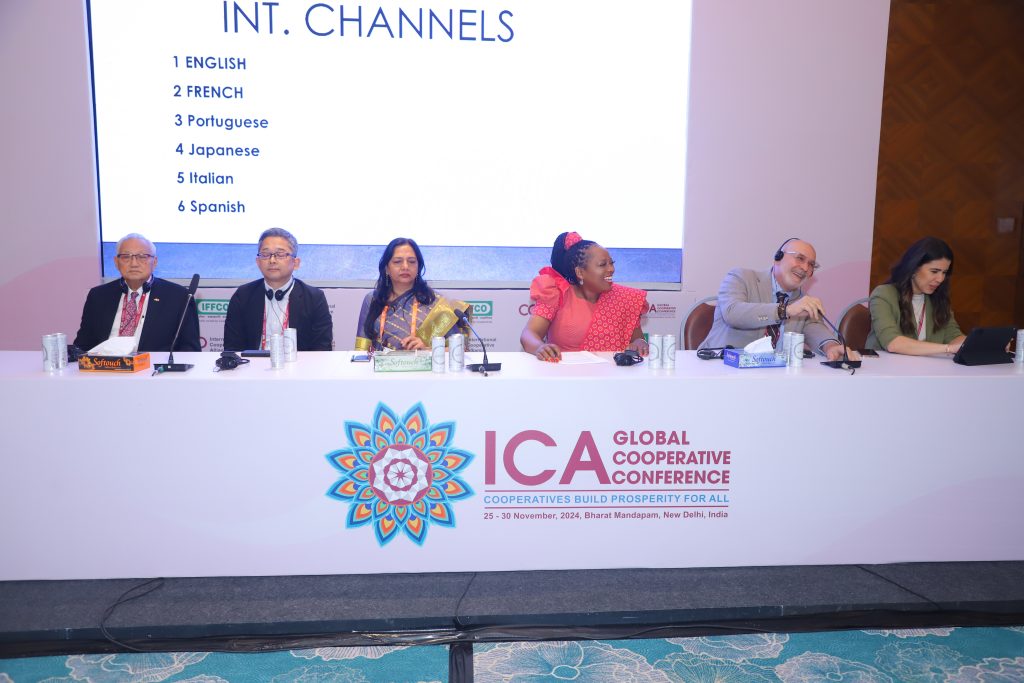After Brazil handed the G20 presidency to South Africa on 19 November, co-operatives and credit unions are exploring how to continue to impact discussions at next year’s summit.
This year’s G20 Leaders’ Declaration recognised “the significant role of financial inclusion in improving financial wellbeing” and committed “to harness the potential of digital and emerging technologies to reduce inequalities”. The World Council of Credit Unions (Woccu), which had campaigned to for an enabling environment for credit unions working towards financial inclusion for underserved populations, welcomed the declaration.
The apex also noted the declaration’s commitment to fair agreements that promote global economic and social development and the reduction of inequality worldwide.
“Having the G20 promote financial inclusion is a key priority for Woccu and our member organisations,” said Erin O’Hern, Woccu’s international advocacy and regulatory counsel, “because it allows us to better advocate that national-level regulators should apply international financial standards proportionally for credit unions who have a long history of filling critical gaps in the financial services market and improving financial inclusion when they have the proper regulatory framework.
“Proportional regulations reduce compliance burdens and allow credit unions to offer more financial products and services to underserved populations in the communities they serve.
“The G20’s stated commitment to harness digital technologies to reduce inequalities also reinforces our credit unions’ mission to bridge the digital divide among vulnerable populations and allow them to access dignified financial services.”
Throughout the year, the Organization of Brazilian Cooperatives (OCB) participated in debates of the B20, a business group that creates a link between the governments that make up the G20; the Y20, an official dialogue forum between young leaders of two country-members; and the G20 Social, the civil society arm of the G20 group.
Related: ICA Global Conference adopts New Delhi Action Agenda
“Participating in the G20 was an excellent opportunity to highlight the transformative role of co-operatives in global quests,” João Penna, OCB government relations analyst, wrote in an article for OCB.
“This visibility is not a one-off and, in 2025, with the realisation of COP30 in Para, in the heart of Amazon, we will highlight how co-operativism can offer essential solutions for the challenges that the world faces.”
The topic of how co-ops can position themselves as key actors in global policy was also explored during a parallel session at the International Cooperative Alliance’s Global Conference in New Delhi, on 26 November.

The lack of global representation for co-ops is down to a lack of awareness among world leaders, not a lack of impact, said OCB general manager Fabíola da Silva Nader Motta, adding: “It is vital that all of us continue to go to these events and engage in conversations to defend co-operatives as a viable solution to global challenges”.
Although co-ops did not meet all their objectives, they are happy to have made a first step, she said, and the next G20 Forum will offer a chance for the movement to continue these engagements. She added that co-operative products had been handed out to B20 participants.
The Brazilian co-op movement is now engaging in discussions on COP conferences, ahead of the COP30 conference in 2025.
“It is essential that the co-operative movement has courage,” she said, adding that OPB will continue to call for favourable legislation and incentives for co-operatives. “We need constant, articulated and strategic work,” she told delegates.
Next steps
The session also heard from Jane Sithole, South Africa’s deputy minister for small business development, who described her country’s efforts to put the co-op agenda on the global map.
“It is critical that there should be consistency for the work that has been done already and start again,” she said.
The Pan-African Parliament recently adopted a model law on co-operatives. “We look forward to engaging on this project,” she said, adding that her ministry believes in powering growth through partnerships.
She also revealed that South Africa is planning events in every province as well as a national event in July to promote the International Year of Cooperatives.
In 2021 the International Cooperative Alliance created a G20 Working Group to bring the co-operative movement’s voice to the G20 Engagement Groups through their contribution in drafting policy papers, background materials, and advocacy documents.